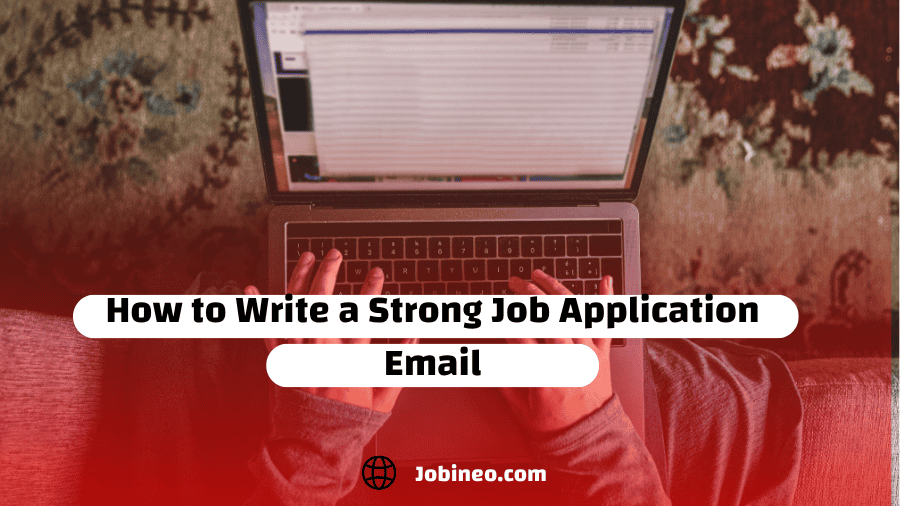Step-by-Step Guide to Writing a Professional Job Application Email

a recruiter sits at their desk on a busy Monday morning, faced with an inbox full of messages. Many subject lines look the same and blend together. Then, one email stands out clear, confident, and relevant. That is the one most likely to be opened first.
Your job application email is the doorway to your resume. While your resume shows what you have done, your email shows how you present yourself. Recruiters often use it to judge professionalism, communication skills, and attention to detail. In many ways, it is the preview that decides whether they want to learn more about you.
Why Your Job Application Email Matters
A strong email makes you memorable before the recruiter even opens your attachment. It demonstrates that you understand how to communicate in a professional setting and that you value their time. In a competitive job market, that first impression can make a real difference.
The Structure of a Strong Job Application Email
Your message does not need to be long. What matters is that it is purposeful, clear, and well-structured.
Write a Clear Subject Line
The subject line is your first chance to make an impression. Keep it simple and professional. For example, include the job title and your name so the recruiter instantly knows why you are writing.
Use a Polite Greeting
Avoid outdated or generic phrases. If you know the hiring manager’s name, use it. If not, “Dear Hiring Manager” works well. A personalized greeting feels warmer and shows that you put in effort.
Craft a Focused Body
Recruiters often skim emails, so keep your message short and to the point. Two short paragraphs are usually enough. Share a key strength or experience, give a brief example of your value, and connect it to the role or company. For example, you might explain how your skills in communication, problem-solving, or creativity align with the company’s goals.
Close Professionally
End with a line that is both polite and forward-looking. Thank the recruiter for their time and express your enthusiasm for the opportunity to contribute. A confident closing line leaves a lasting impression.
Add a Complete Signature
Your email signature should make it easy for the recruiter to reach you. Include your full name, phone number, and links to your LinkedIn profile or portfolio if relevant.
Common Mistakes to Avoid
Even a small mistake can reduce the impact of your email. Try to avoid:
- Vague or generic subject lines
- Writing the email as if it were a second resume
- Overly casual tone or language
- Forgetting to attach your CV or portfolio
- Typos or formatting errors
Paying attention to these details shows professionalism and care.
Final Thoughts
Your job application email is your first opportunity to stand out in a crowded inbox. By keeping it clear, concise, and relevant, you show that you respect the recruiter’s time and understand how to communicate effectively. Nail the subject line, stay professional, and highlight the value you bring. Done well, your email sets the stage for your resume to be read with genuine interest.








